Inside Project Volta: lazies first, or how Google plans to boost battery life on Android L by up to 20%
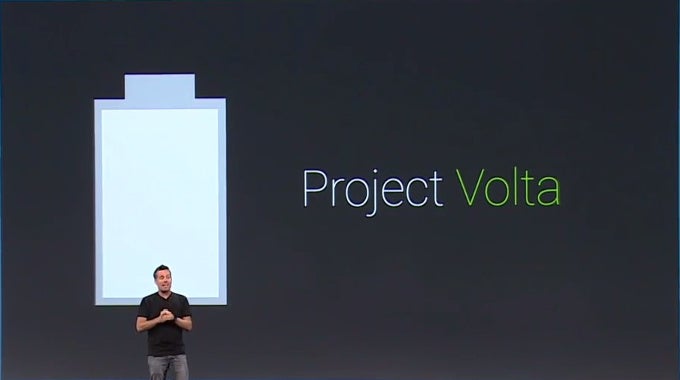
Project Volta: Lazies first
Project Volta pushes devs to think about battery optimizations
This finding pushed Google to find a solution with an approach the company calls ‘lazy first’. Lazy first is basically a principle that encourages developers to schedule non-urgent tasks to be executed in the last possible moment. That’s a radical change from the current, purely performance-driven thinking apps schedule even non-urgent operations on a first-come first-serve basis.JobScheduler makes lazy-fying your app easier
Of course, in order for users to fully feel the benefit, Google is making an effort to convince its third-party developers to optimize their apps as well. To make this easier, with Project Volta, Google is introducing a new API called JobScheduler.
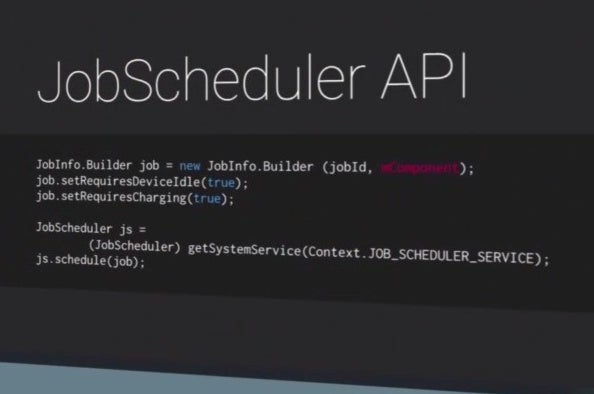
Battery Historian
Another element of Project Volta that will be instrumental in achieving a notable battery improvement on Android devices is the stat-laden Battery Historian tool. This is purely a developer-oriented tool that you can use to see how your app performs with an immense level of detail (down to each wake-up event it causes in a per-second timeline).
With Battery Historian developers will be able to see the problem - if there is one - with their app and why it is draining battery. You cannot fix a problem, if you cannot see it, right? Battery Historian gives devs the tools to now see the issue very clearly.
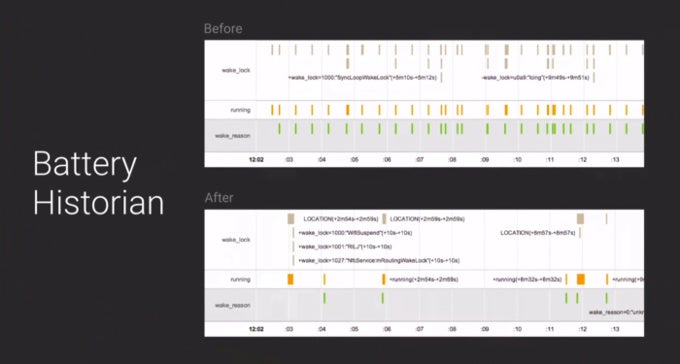
Battery Saver mode: squeeze 90 minutes more out of your dying battery
Finally, Battery Saver mode is a part of Project Volta that every user can relate to. In fact, Google claims that one can squeeze around 90 minutes more in battery life by doing the following:
-
reduce the speed of the processor (and cap the amount of cores running)
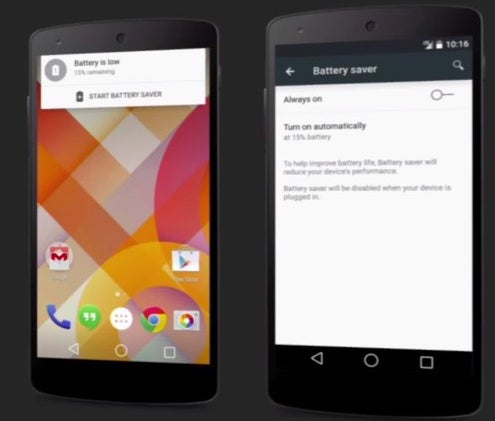
- reduce the refresh rate of the display
- limit background data
Project Volta improvements: 20% better battery life with Android L
Good news is that Project Volta is not just a theoretical initiative with no real results. Quite the opposite - Google's simulation with Project Volta on the Nexus 5 shows 15-20% improvements in battery life, and we have no reasons to doubt that - when all phone makers optimize their apps - other phones should see a similar battery life boost.
reference: Google, AnandTech
Follow us on Google News









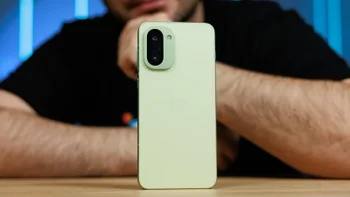




Things that are NOT allowed:
To help keep our community safe and free from spam, we apply temporary limits to newly created accounts: